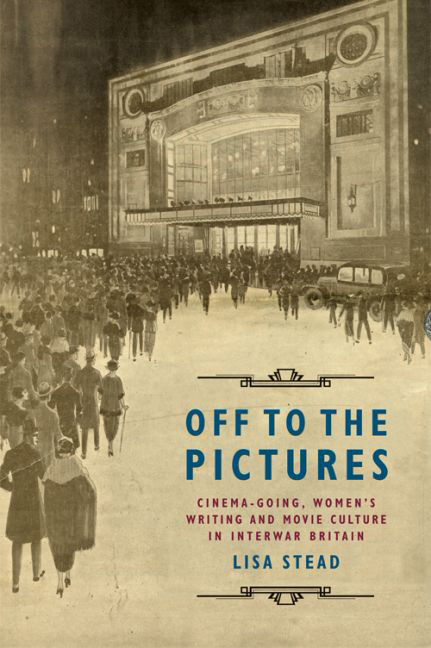Book contents
- Frontmatter
- Contents
- List of Figures
- Acknowledgements
- Dedication
- Introduction
- 1 Off to the Pictures: Cinema, Fiction and Interwar Culture
- 2 Screen Fantasies: Tie-ins and the Short Story
- 3 Middlebrow Modernity: Class, Cinema-going and Selfhood
- 4 Wander, Watch, Repeat: Jean Rhys and Cinema
- 5 Film Talk: C. A. Lejeune and the Female Film Critic
- 6 Elinor Glyn: Intermedial Romance and Authorial Stardom
- Afterword
- Bibliography
- Index
Afterword
Published online by Cambridge University Press: 15 September 2017
- Frontmatter
- Contents
- List of Figures
- Acknowledgements
- Dedication
- Introduction
- 1 Off to the Pictures: Cinema, Fiction and Interwar Culture
- 2 Screen Fantasies: Tie-ins and the Short Story
- 3 Middlebrow Modernity: Class, Cinema-going and Selfhood
- 4 Wander, Watch, Repeat: Jean Rhys and Cinema
- 5 Film Talk: C. A. Lejeune and the Female Film Critic
- 6 Elinor Glyn: Intermedial Romance and Authorial Stardom
- Afterword
- Bibliography
- Index
Summary
The diverse literary forms emergent from interwar culture demonstrate the centrality of cinema-going to women's evolving sense of selfhood during the period. Literary representations of women's cinema-going play upon both the conservative and disruptive potential of film, using it as a tool for forging new understandings of domestic, professional, public and private gendered selves. Two primary modes of such self-fashioning emerge from women's film writings. In the first instance, cinema offered identity templates, presenting new role models and alternative gender representations for female spectators to use, adapt or discard. At the same time, cinema gave women a tool for creating new identities as writers, journalists, authors, filmmakers and stars.
Both of these modes evidence the centrality of processes of negotiation, or ‘offsetting’ in women's encounters with cinema culture. Again and again in short stories, novels, criticism and serialisations, both cinema-going characters and the creators of film fictions use cinema-going as a vehicle for working through a variety of pressures and conflicts in women's interwar experience. The pleasures of popular culture are offset against the problematic and restrictive representations that this culture contained. Equally, the social and physical freedoms that cinemas as public leisure spaces offered women are offset against the ways in which cinema-going conversely regulated their movement, made their public presence spectacular and produced new pressures to conform to standardised modes of gendered, class-inflected and regional subjectivities. To unpack this idea further, I return once more to Elizabeth Bowen, turning here to her non-fiction reflection on the value of cinema-going at the close of the interwar period:
I go to the cinema for any number of different reasons … I got to be distracted (or ‘taken out of myself’); I go when I don't want to think; I go when I do want to think and need stimulus; I go to see pretty people; I go when I want to see life ginned up, charged with unlikely energy; I go to laugh; I go to be harrowed; I go when a day has been such a mess of detail that I am glad to see even the most arbitrary, the most preposterous pattern emerge…
- Type
- Chapter
- Information
- Off to the PicturesCinemagoing, Women's Writing and Movie Culture in Interwar Britain, pp. 189 - 198Publisher: Edinburgh University PressPrint publication year: 2016



